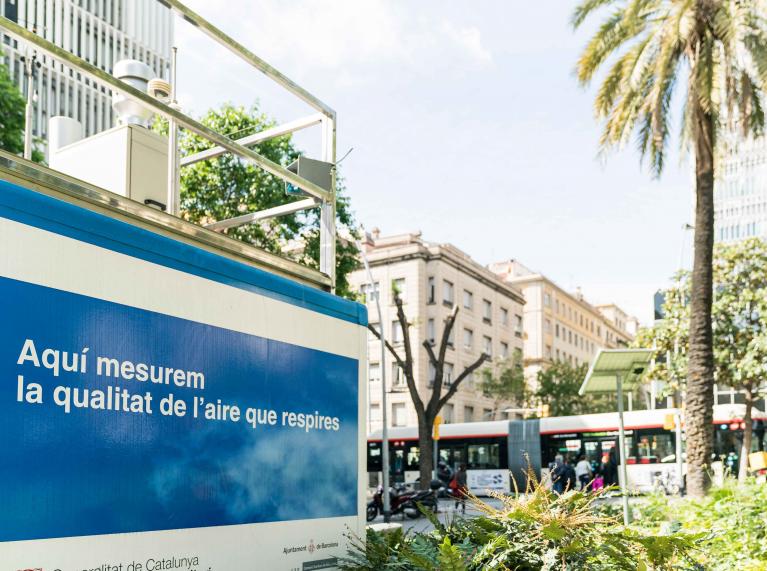New measures to prevent pollution are having more impact in big cities. In order to maintain a good quality of life, the air we breathe in cities must be measured on a regular basis and protocols must be established to decrease the effects of pollution.
What are we breathing in Barcelona?
Barcelona is a city prone to high concentrations of particulate pollutants in the air owing to the Mediterranean climate, with its low rainfall throughout the year, industrial activity and the high volume of traffic concentrated in the city.
NO2 gases and PM10 particles are the main invisible pollutants found in the air and generated by traffic congestion which directly affect our respiratory systems.
How are air pollutants detected?
There are five levels of air quality in Barcelona that are measured by 11 monitoring stations distributed throughout the city and which detect the major pollutants.
When the monitoring stations record a high atmospheric concentration of NO2 gases and/or PM10 particles episodes of pollution are then declared.
What does it happen in these episodes?
Such situations lead to the activation of a municipal protocol that includes measures for reducing pollution and improving the quality of the city’s air, such as monitoring public works on public roads, spraying the streets with more water, restricting the circulation of polluting vehicles, boosting public transport and encouraging the use of shared and sustainable vehicles.
Other initiatives, such as municipal programs focused on preventing polluting effects on school environments, are key to raising awareness and educating children about the resources we have to improve the air quality we breathe.
You can take a look at the Barcelona City Council website to find more information about the air quality of the city.

